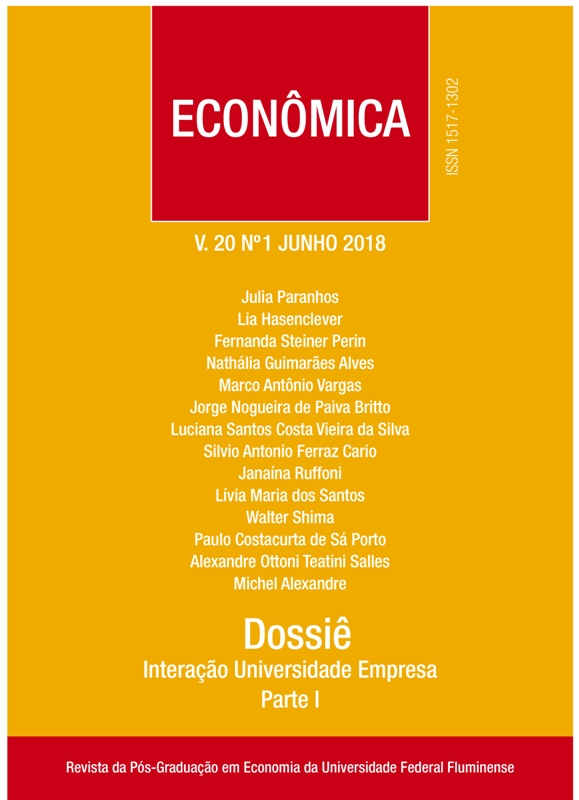An unconventional interpretation on periodization and dimensions of globalization in historical perspective
DOI:
https://doi.org/10.22409/reuff.v20i1.35029Resumo
Unlike the short-term business cycles, globalization has developed in long waves surrounded by periods of booms and different types of crises. The phenomenon is usually associated with a process of the integration of national economies into a wider (global) sphere involving productive and financial markets. The current increased use of the term does not mean that the phenomenon is actually new. Hence, the article aims to analyse preconditions, periodization and dimensions of globalization in historical perspective. Many scholars have discussed its causes and consequences based on what has taken place in the last few decades, normally starting in the late 1970s. Nevertheless, the phenomenon has precedents in history, which means, it is not an exclusive occurrence of the capitalism of the late 20th century. A literature has flourished suggesting that the occurrence of greater global connectivity involving many areas of human activity and social interaction has occurred at times in history since a century (or even centuries) ago. So, the article postulates that globalization is not only secular but an ancient phenomenon. Therefore, proposes that non-economic aspects of global integration should be considered as key elements to survey the topic, which have been neglected by economists and economic historians. On this account, this paper proposes a systematization of the discussions on globalization from an interdisciplinary point of view based mainly on the contribution of Held et al (1999). It concludes that the beginning of the first historical occurrences of globalization occurred much as early as in the Middle Ages, and emphasises the importance of aspects of it outside economics, such as culture and language.Downloads
Downloads
Publicado
Edição
Secção
Licença
Autores que publicam nesta revista concordam com os seguintes termos:
a.Autores mantém os direitos autorais e concedem à revista o direito de primeira publicação, com o trabalho simultaneamente licenciado sob a Licença Creative Commons Attribution que permite o compartilhamento do trabalho com reconhecimento da autoria e publicação inicial nesta revista.
b.Autores têm autorização para assumir contratos adicionais separadamente, para distribuição não-exclusiva da versão do trabalho publicada nesta revista (ex.: publicar em repositório institucional ou como capítulo de livro), com reconhecimento de autoria e publicação inicial nesta revista.
c.Autores têm permissão e são estimulados a publicar e distribuir seu trabalho online (ex.: em repositórios institucionais ou na sua página pessoal) a qualquer ponto antes ou durante o processo editorial, já que isso pode gerar alterações produtivas, bem como aumentar o impacto e a citação do trabalho publicado (Veja O Efeito do Acesso Livre).

